15 Jun2021
By Katrina Norfleet
Ed Prep Matters is featuring a new series, “AACTE Teacher Stories,” to spotlight the experiences of K-12 educators who are attending or are alumni of AACTE member institutions. AACTE invites preservice and in-service school teachers to reflect on how they are applying the practices, frameworks, and strategies they acquired during their educator preparation program (EPP) studies to assure student success.
This series is an opportunity to showcase how EPP students successfully translate theory into practice. AACTE is currently seeking article submissions that address questions such as the following:
15 Jun2021
By Jerrica Thurman

AACTE is excited to announce its first ever podcast will debut this month. The new podcast entitled, Revolutionizing Education, examines ways to innovate educator preparation and education for all learners. The first podcast series highlights case stories shared by AACTE members during the 2021 Annual Meeting. New episodes from the first series will be released throughout the summer. In the fall, the AACTE podcast will feature live interviews with members, national education leaders, students, and other influencers in the education industry.
AACTE has partnered with Resonate Recordings for high-quality podcast production that will expand the reach of members’ work in educator preparation throughout the world. AACTE’s podcast episodes are available on the following platforms: Apple Podcasts, Google Podcasts, Stitcher, TuneIn, and Spotify. On these platforms, you can search for and access the podcast, learn about it, listen to the episodes as well as leave ratings and reviews.
Follow the AACTE Podcast on Twitter at #AACTEPodcast and #RevolutionizingEd. Be sure to tune in and spread the word!
15 Jun2021
By Nicole Dunn
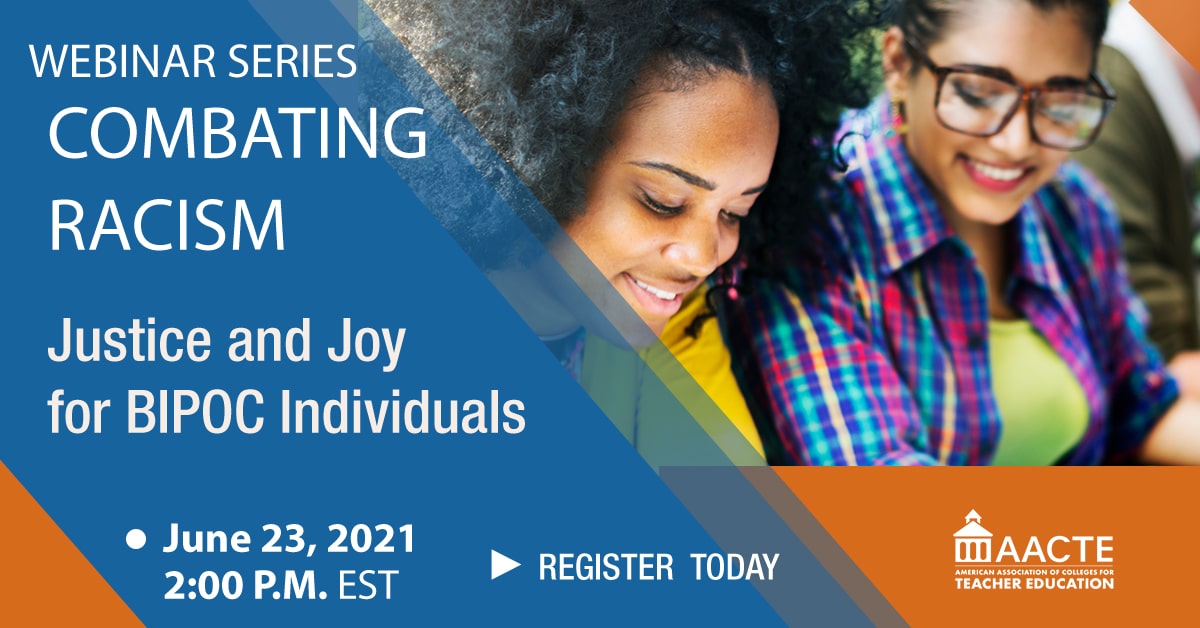
AACTE’s “Combating Racism is Educator Preparation Series” began in 2021 with three specific objectives for our membership, audience, and the field at large:
- Contextualize the role of racism in structural oppression and how the education system at large maintains and promulgates these oppressive systems.
- Engage with you, the audience, to understand you and your organization’s understanding and capacity to address racism using antiracist, abolitionist, inclusive, and intersectional policies.
- Normalize and humanize critical conversations around racism within the field that will lead to collaborative action around structural oppression in education.
14 Jun2021
By Ward Cummings

On behalf of AACTE and the Advisory Council of State Representatives (ACSR), I am happy to announce the winners of the 2020-21 State Chapter Support Award: The three recipients are Nebraska, California and Kentucky.
It is the mission of AACTE to elevate education and educator preparation through high-quality research, professional practice, and advocacy for all learners in ways that are collaborative and that promote diversity, equity, and inclusion. Each year, AACTE awards funding to a handful of projects organized by state chapters in these areas.
14 Jun2021
By Jayme Blaschke
This article originally appeared in the Texas State University Online Newroom and is reprinted with permission.
 Michael P. O’Malley, dean of the College of Education at Texas State University, has been elected by his peers as president-elect of the Texas Association of Colleges for Teacher Education (TACTE).
Michael P. O’Malley, dean of the College of Education at Texas State University, has been elected by his peers as president-elect of the Texas Association of Colleges for Teacher Education (TACTE).
O’Malley will serve in officer roles as president-elect for 2021-22, president in 2022-23, and past-president in 2023-25. He has been a member of the TACTE legislative committee since 2018.
TACTE is an organization for deans and associate deans of education in Texas and is sometimes referred to as the Council of Deans of Education. Its purpose is to stimulate improvement in the education of professional school personnel in Texas.
14 Jun2021
By Jane E. West and Kaitlyn Brennan

This blog post is written by AACTE consultant Jane West and is intended to provide updated information. The views expressed in this post do not necessarily reflect the views of AACTE.
The Attack on Critical Race Theory Continues
In a Washington Update last month, we offered a distressing summary of how the teaching of our nation’s racial history has been thrown into the heart of the political arena. Unfortunately, the trend is continuing and gaining traction. Last week, Rep. Virginia Foxx (R-NC), the top Republican on the House Education and Labor Committee, announced her support for two bills intended to block the teaching of critical race theory in K-12 schools. This week Republican Sens. Marsha Blackburn (R-TN), Mike Braun (R-IN) and Rick Scott (R-FL) introduced a resolution condemning the use of critical race theory in K-12 schools and teacher preparation programs. “Critical race theory has no place in American schools,” Blackburn said in a statement. “This resolution is an important step to prevent the far left from pushing their radical political agenda in our classrooms.”
14 Jun2021
By Kristine Schutz
 Video is a powerful tool—for teacher candidates and teacher educators alike—to engage in reflective practice and accelerate professional growth. And I can say this from personal experience as it has helped me grow as an educator.
Video is a powerful tool—for teacher candidates and teacher educators alike—to engage in reflective practice and accelerate professional growth. And I can say this from personal experience as it has helped me grow as an educator.
As a proponent of video, I believed this innovative professional learning approach would be an asset to the undergraduate elementary teacher preparation program at the University of Illinois at Chicago (UIC). Our preparation program is organized around a decolonizing framework that recognizes that schools are designed for acculturation and colonization. And, as such, we prepare teachers who simultaneously teach in—and resist—that context (Trinder, 2021).
As my colleagues and I were talking about bringing video coaching to our program, questions were raised about how to make sure that we do not lose the context-driven aspects of our program that are attended to as our faculty come to know the children, schools, and communities in which our students learn to teach. Questions often associated with any new technology implementation were also brought up: How hard is this going to be to implement? How am I going to use it? Is it going to take too much time?
14 Jun2021
By Linda Minor
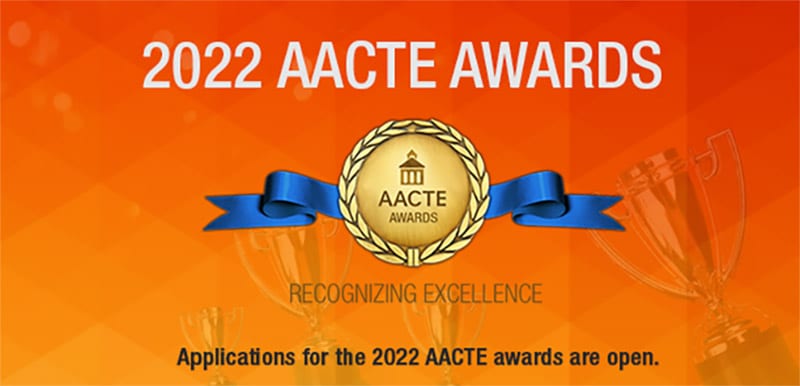 Why wait to submit your application for the 2022 AACTE Awards? Avoid the stress of a last-minute rush and submit your entry early. AACTE Awards can be either self-nominated or nominated by a third party. To submit your nomination, visit AACTE’s online submission site.
Why wait to submit your application for the 2022 AACTE Awards? Avoid the stress of a last-minute rush and submit your entry early. AACTE Awards can be either self-nominated or nominated by a third party. To submit your nomination, visit AACTE’s online submission site.
Winning entries will be selected by AACTE’s Programmatic Advisory Committees and recognized formally at the 2022 Annual Meeting, March 4-6, in New Orleans, LA.
This is the 26th year AACTE’s awards program has been recognizing member institutions’ exemplary programs as well as individuals who have made noteworthy contributions to education preparation. For an overview of the 2021 award winners, see this press release.
11 Jun2021
By Meghan Grenda
AACTE’s Member Spotlight features an individual from a member institution, highlighting how their work makes a difference in classrooms across the country. Nominate yourself or another member by providing a response to the following questions and sending to mgrenda@aacte.org.
Get to know Clay Smith …
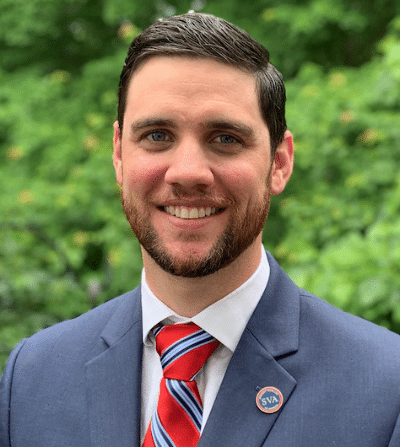 Position/Institution: I am in my 6th year as the Special Populations Coordinator in the College of Education at East Carolina University (ECU). Prior to that, I served for nearly 3 years as the South Central Consortium Coordinator for ECU’s Partnership Teach degree-completion model.
Position/Institution: I am in my 6th year as the Special Populations Coordinator in the College of Education at East Carolina University (ECU). Prior to that, I served for nearly 3 years as the South Central Consortium Coordinator for ECU’s Partnership Teach degree-completion model.
Number of years in your position: Two years
Alma Mater(s): B.S. in history education, East Carolina University; MAEd in history education, East Carolina University; Ed.D. in Educational Leadership, University of North Carolina-Wilmington.
Hometown: Mebane, NC
11 Jun2021
By Shalander Samuels
AACTE Teacher Stories is a new series highlighting the experiences of K-12 educators who are attending or alumni of AACTE member institutions.
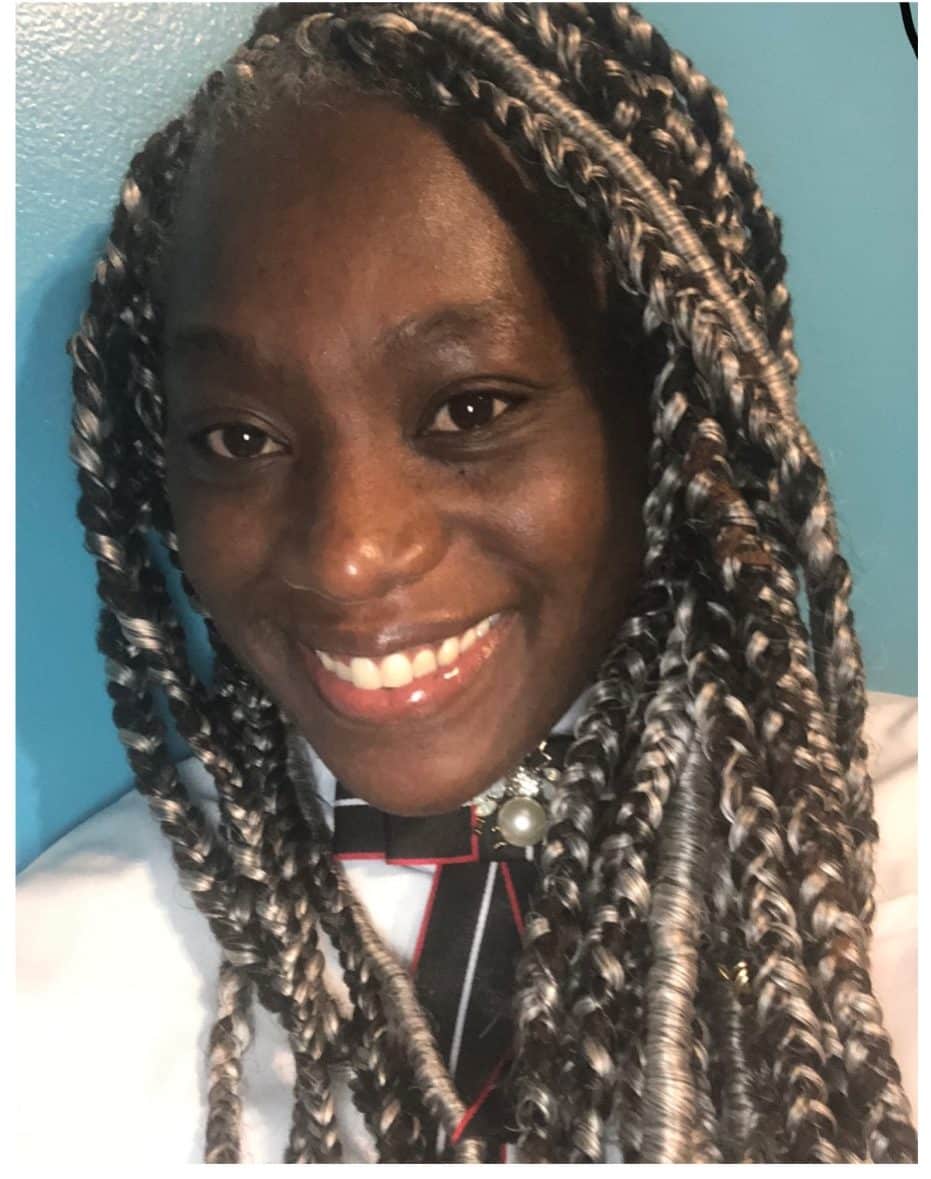 As an AACTE National Holmes Scholar who graduated from the University of Central Florida, I learned that to persevere I must overcome some fears regardless of how grand they might seem. After graduation, I opted to take the path of returning to the K-12 classroom as a teacher and reading specialist rather than transitioning to higher education. In the midst of COVID-19, I was uncertain and fearful, like many of my fellow teachers. The new school year highlighted my and others’ fears, forcing us to consider our roles as frontline workers in education. My English class read the text, What Fear Can Teach Us, a speech by Karen Thompson Walker. In her speech, Walker posits “We all know what it’s like to be afraid. We know how fear feels, but I’m not sure if we spend enough time thinking about what fear means.”
As an AACTE National Holmes Scholar who graduated from the University of Central Florida, I learned that to persevere I must overcome some fears regardless of how grand they might seem. After graduation, I opted to take the path of returning to the K-12 classroom as a teacher and reading specialist rather than transitioning to higher education. In the midst of COVID-19, I was uncertain and fearful, like many of my fellow teachers. The new school year highlighted my and others’ fears, forcing us to consider our roles as frontline workers in education. My English class read the text, What Fear Can Teach Us, a speech by Karen Thompson Walker. In her speech, Walker posits “We all know what it’s like to be afraid. We know how fear feels, but I’m not sure if we spend enough time thinking about what fear means.”
10 Jun2021
By Jerrica Thurman
Are you looking to connect with colleagues with similar, scholarly interests? Engage with like-minded peers and grow your network on AACTE’s
Connect360 anytime, from anywhere. Simply log on to aacteconnect360.org, create your profile, and begin inviting colleagues to join your network right away. You can even introduce yourself in the open forum.
08 Jun2021
By Katrina Norfleet
Last month, President Biden called for an unprecedented investment in his FY 22 budget proposal to begin to redress the chronic inequities in our nation’s education system. In a new playbook, the Partnership for the Future of Learning offers a set of high-impact strategies and examples for recruiting, preparing, developing, and retaining high-quality teachers and bringing greater racial, ethnic, and linguistic diversity to the profession.
The 152-page Teaching Profession Playbook was developed by the Learning Policy Institute and the Public Leadership Institute in collaboration with 26 organizations and five individual experts. The digital playbook includes examples of legislation; a curated list of publications, by topic, for further reading; a guide to talking about teacher shortages and strengthening the profession; and examples of research-based policies.
08 Jun2021
By Diana Fingal

It’s not enough for educators to know how to use technology; they have to understand the pedagogical principals underpinning the tools so that tech is used effectively and gives students agency over their learning.
For example, technology should not merely be a replacement for nontech tools. An electronic whiteboard is merely an expensive chalkboard if teachers use it only to project lessons and homework assignments. But technology can transform learning when it is used in a way that allows students to collaborate with peers and experts across great distances, gather and analyze large data sets, and use creation tools to make art that can be critiqued by an engaged audience.
07 Jun2021
By Amy Carlson Gustafson
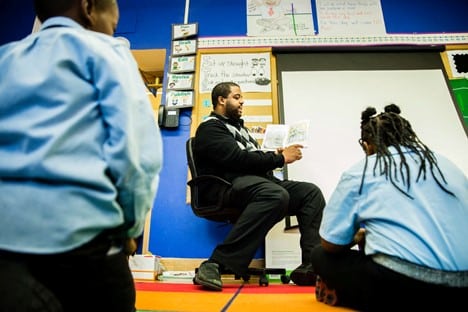
This article originally appeared on the University of St. Thomas Newsroom and is reprinted with permission.
The School of Education at St. Thomas is making inroads to increase the number of people of color who choose to become teachers, and national organizations are recognizing its efforts. In March, the school received notice that the Association of Colleges for Teacher Education (AACTE) accepted its proposal to be part of a consortium to increase equitable access to teaching.
Only around 6% of licensed Minnesota teachers identified as Black, Indigenous and people of color (BIPOC), while 38% of students in the state are nonwhite, according to state data. In efforts to help close that gap, the School of Education will join with other AACTE members to examine entrance requirements for teacher preparation programs. This collaboration exemplifies just one more way in which the school has been working to grow the number of diverse teachers through a variety of programs, including key partnerships.
07 Jun2021
By Linda Minor

AACTE is excited to have our next in-person Annual Meeting in New Orleans, LA, March 4-6, 2022. New Orleans has so much to offer —dining, attractions, shopping, museums, tours, nightlife, cultural arts, and so, so much more. Learn more about the many things to do while you are visiting the host city.
The #AACTE22 meeting will offer everything you expect from AACTE’s annual conference: concurrent sessions, keynote speakers, networking opportunities in the Conference Community Center with our professional service providers—plus much, much more.





 Michael P. O’Malley, dean of the College of Education at Texas State University, has been elected by his peers as president-elect of the Texas Association of Colleges for Teacher Education (TACTE).
Michael P. O’Malley, dean of the College of Education at Texas State University, has been elected by his peers as president-elect of the Texas Association of Colleges for Teacher Education (TACTE).
 Video is a powerful tool—for teacher candidates and teacher educators alike—to engage in reflective practice and accelerate professional growth. And I can say this from personal experience as it has helped me grow as an educator.
Video is a powerful tool—for teacher candidates and teacher educators alike—to engage in reflective practice and accelerate professional growth. And I can say this from personal experience as it has helped me grow as an educator.  Why wait to submit your application for the 2022 AACTE Awards? Avoid the stress of a last-minute rush and submit your entry early. AACTE Awards can be either self-nominated or nominated by a third party. To submit your nomination, visit
Why wait to submit your application for the 2022 AACTE Awards? Avoid the stress of a last-minute rush and submit your entry early. AACTE Awards can be either self-nominated or nominated by a third party. To submit your nomination, visit  Position/Institution: I am in my 6th year as the Special Populations Coordinator in the College of Education at East Carolina University (ECU). Prior to that, I served for nearly 3 years as the South Central Consortium Coordinator for ECU’s Partnership Teach degree-completion model.
Position/Institution: I am in my 6th year as the Special Populations Coordinator in the College of Education at East Carolina University (ECU). Prior to that, I served for nearly 3 years as the South Central Consortium Coordinator for ECU’s Partnership Teach degree-completion model. As an AACTE National Holmes Scholar who graduated from the University of Central Florida, I learned that to persevere I must overcome some fears regardless of how grand they might seem. After graduation, I opted to take the path of returning to the K-12 classroom as a teacher and reading specialist rather than transitioning to higher education. In the midst of COVID-19, I was uncertain and fearful, like many of my fellow teachers. The new school year highlighted my and others’ fears, forcing us to consider our roles as frontline workers in education. My English class read the text, What Fear Can Teach Us, a speech by Karen Thompson Walker. In her speech, Walker posits “We all know what it’s like to be afraid. We know how fear feels, but I’m not sure if we spend enough time thinking about what fear means.”
As an AACTE National Holmes Scholar who graduated from the University of Central Florida, I learned that to persevere I must overcome some fears regardless of how grand they might seem. After graduation, I opted to take the path of returning to the K-12 classroom as a teacher and reading specialist rather than transitioning to higher education. In the midst of COVID-19, I was uncertain and fearful, like many of my fellow teachers. The new school year highlighted my and others’ fears, forcing us to consider our roles as frontline workers in education. My English class read the text, What Fear Can Teach Us, a speech by Karen Thompson Walker. In her speech, Walker posits “We all know what it’s like to be afraid. We know how fear feels, but I’m not sure if we spend enough time thinking about what fear means.”

